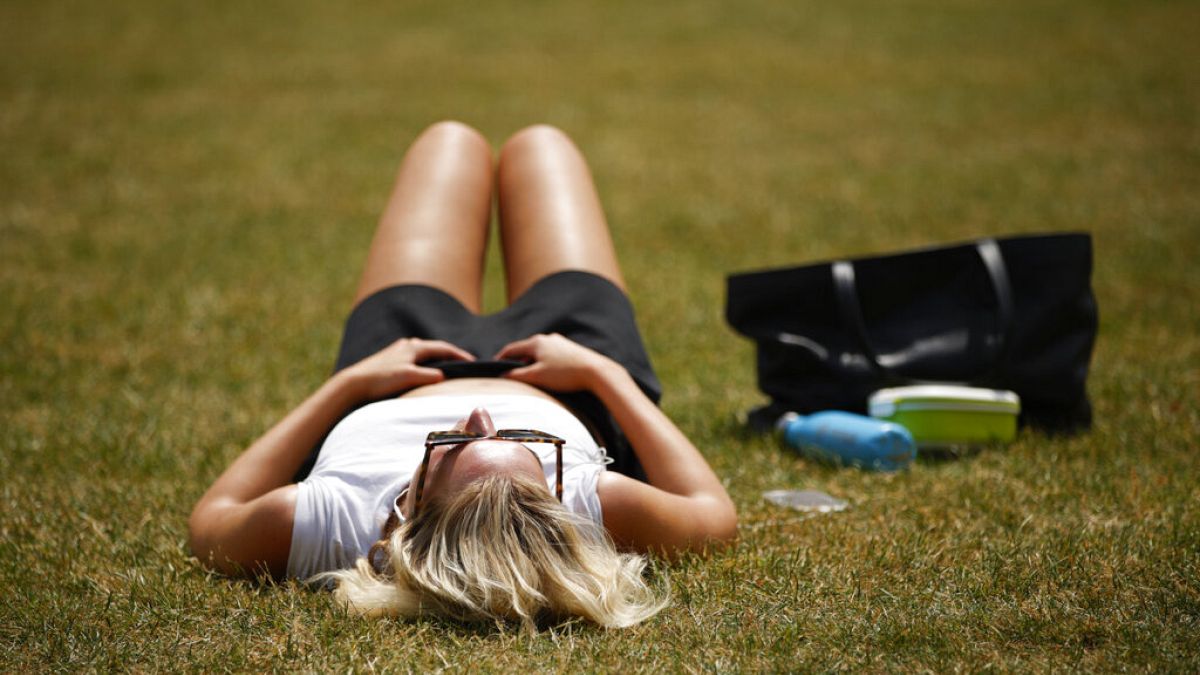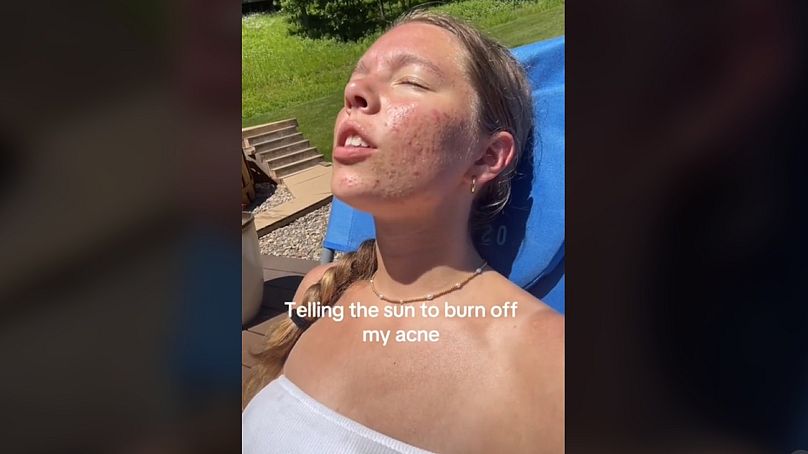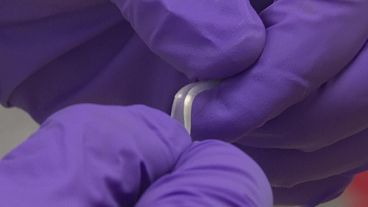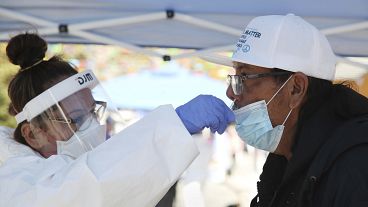Some social media influencers are encouraging beachgoers not to use sunscreen to "heal" acne. Doctors say the consequences could be devastating.
Health experts are warning against a dangerous trend circulating on social media that's encouraging people not to use sunscreen.
A growing number of videos on the popular social media platform TikTok are suggesting that getting a sunburn could work as a health boost or evenhelp get rid of acne.
Doctors at the Queen Victoria Hospital in the UK have been quick to denounce the viral trend, explaining that it could increase the chances of developing skin cancer.
"Whilst there are health benefits associated with getting enough sunlight, sunscreen should still be used to help reduce your risk of developing skin cancer," they said in a statement.
"The more episodes you have of being sunburnt throughout your lifetime, the greater your risk of developing skin cancer, as well as your skin prematurely ageing".
"The impact of this trend could be far-reaching," they said.
The hospital treats around 700 patients a year for sunburn, adding that "the number is increasing year on year".
Doctors are worried that the effects of this trend could last for years, meaning "TikTok followers may well develop skin cancer in years to come".
Sam Orkar, clinical director at Queen Victoria's Plastics and Burns Services, says melanoma is the fifth most common type of cancer and numbers in the UK are rising.
"There are safer ways to treat acne than putting yourself at risk through unprotected sun exposure", he said.
What is melanoma and what are the most common symptoms?
Melanoma is a type of skin cancer that can spread to other organs. Ultraviolet light —which comes from sunrays but is also used in sunbeds — is the most common cause.
The risk is higher for people with pale skin, or with a large number of moles, as well as for those who are related to a family with a history of skin cancer.
Moles are the best indicator for monitoring potential melanoma development.
The most common symptoms are moles with uneven shapes or edges, or even with a mix of two or more colours.
Moles are also usually small, while melanomas tend to be bigger, often more than 6mm wide. A mole that changes size, shape, or colour may also be a melanoma, according to the UK's National Health Service.
Doctors recommend getting your moles checked at least once a year.
Which EU countries have the highest melanoma rate?
The International Agency for Research on Cancer estimated there were over 1.5 skin cancer cases in the world in 2022.
In EU countries, Denmark has the highest melanoma estimated incidence (number of cases in 100,000 people), with a higher incidence rate in northern European countries.
- Denmark 50.3
- Netherlands 48.0
- Sweden 42.4
- Finland 35.7
- Germany 34.8
- Slovakia 33.6
- Ireland 33.9
- Belgium 29.2
- Luxembourg 24.8
- France 24.7
The EU average is 22.8.
TikTok dermatologists turn the heat up on sunburn misinformation
The rise in sunburn misinformation has prompted some dermatologists to take to TikTok themselves to debunk the myths.
Dermatologist Katie Belzenay said in her own video published on the social media platform that "while there might be potential short-term benefits to the tanning with your acne", such as having less oily skin and better-disguised acne spots, the "risks of UV exposure outweigh any potential benefits".
And the risks are not just related to melanoma - prolonged and intense sun exposure, she says, can also cause hyperpigmentation (a condition that makes some areas of the skin darker than others) and erythema (redness of the skin), as well as worsening post-acne marks.
















